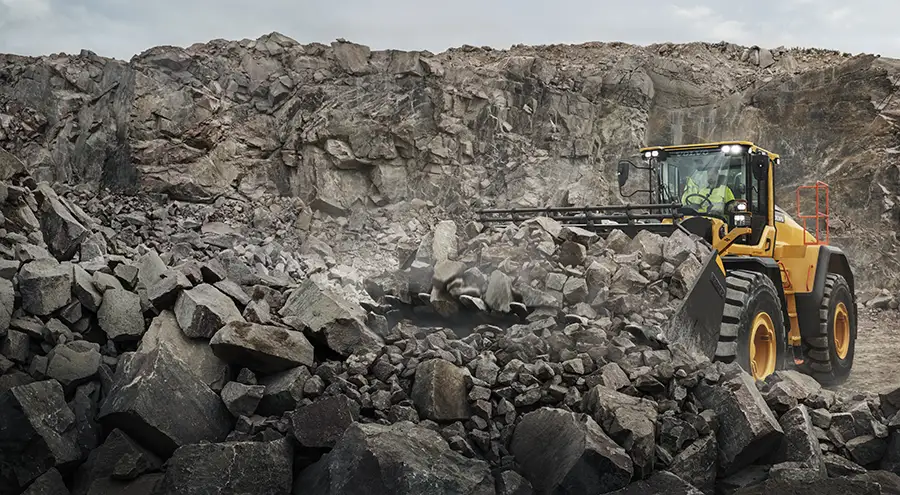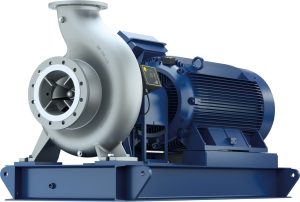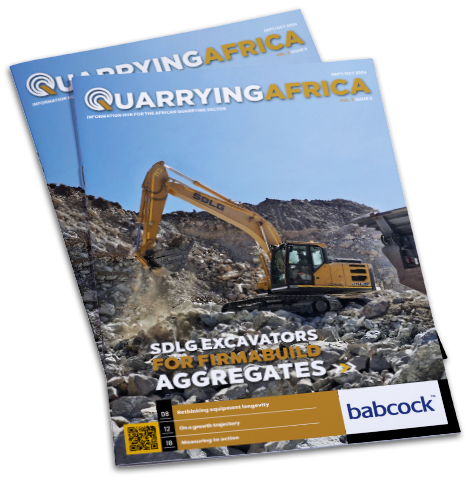Buying a wheel loader is a big decision. Quarry owners want to invest in a machine that suits their operational needs. It is therefore important to know what to consider when making this big-ticket purchase.
According to Gebremeskel, a wheel loader plays a crucial role in the operations of a quarry site and the importance of choosing the right machine cannot be overstated.
“Volvo dealers work closely with customers as business partners and consultants to advise on the optimum wheel loader specification and fleet configuration, as well as the site setup and driving routes, to meet their targets for tonnes per hour production, cost per tonne and CO2 emissions per tonne. With the right wheel loader, quarry operators can increase their output, increase revenues and profits, and decrease their environmental impact,” says Gebremeskel.
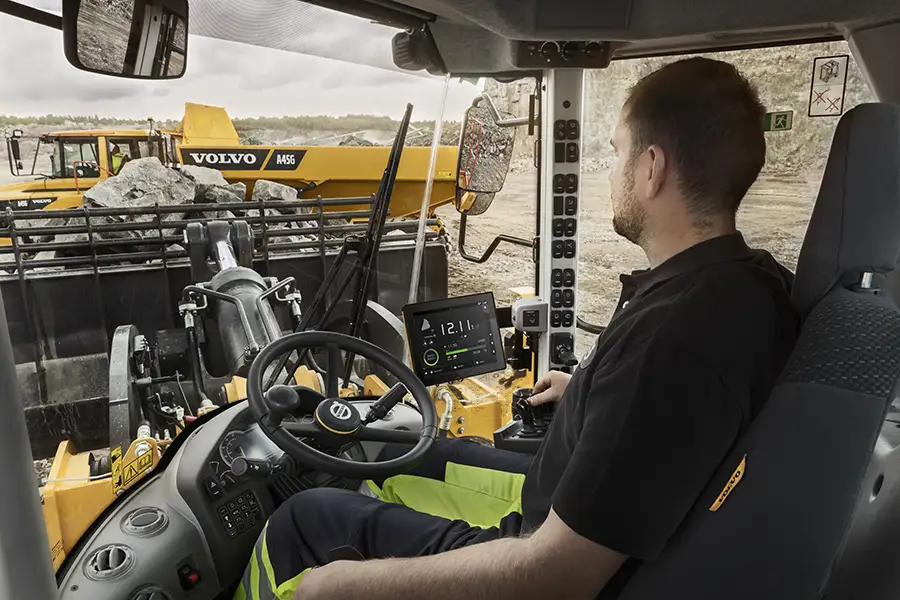
Key factors
First of all, he says, quarry operators should consider their production target. In other words, what is the hourly production they expect the wheel loader to contribute to the production network? This will determine the size of the wheel loader. Selecting the right size and specification for the targets and application will help quarry operators to get the most value and effectiveness from their wheel loaders.
Gebremeskel points out that quarries should also consider the application to ensure the correct configuration of the machine. For example, face extraction and rehandling in quarries present different challenges that the machine must be ready to handle.
“For rock handling or face loading applications in quarries, where the wheel loader is working on the face after blasting, there are high demands on machine availability, utilisation and operator skill. A high dump clearance is also needed to load rigid trucks and there is a high risk of tyre cuts,” says Gebremeskel.
For rehandling, meanwhile, where the wheel loader is working after the crusher or sorter, there are also high demands on high production and the wheel loader should be equipped for handling loose material in load and carry applications.
“In general, quarry operators should also look for wheel loaders with high uptime, optimal bucket capacity, fast cycle times and an ergonomic operator environment to increase their productivity and move more tonnes per hour,” adds Gebremeskel.
Low total cost of ownership, meanwhile, can be ensured by machine durability, minimal maintenance requirements, high fuel efficiency and a proactive dealer that looks to meet customer needs through a combination of machines and services, as a long-term business partner, he adds.
“By choosing the right wheel loader for the job, quarry operators can optimise their production rate, lower production cost, increase product quality, improve health and safety, and lower environmental impact,” he says.
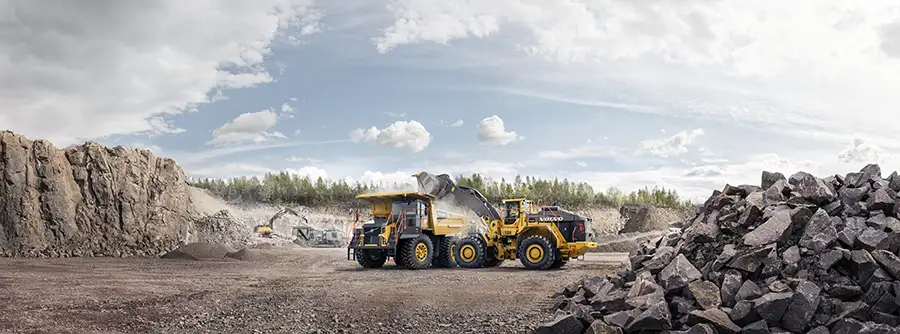
Volvo offering
Volvo CE offers GPE wheel loader models to meet various size requirements, ranging from the L60F, which has a 7-t tipping capacity at full turn, to the L350H, which has a 35-t capacity.
For rock handling or face loading applications in quarries, Volvo CE offers specific rock buckets and heavy-duty L5 tyres to minimise the risk of tyre cuts. To excel in rehandling, meanwhile, Volvo CE provides dedicated rehandling buckets, L3 or L4 tyres, a rehandling counterweight, a lock-up torque converter (standard on H-Series), and a limited slip differential lock on the rear axle, as an option.
To ensure machines are ready to work when needed, Volvo wheel loaders are built for durability and quick serviceability. The new Collision Mitigation System launched in early 2023 further contributes to machine uptime and productivity, as well as safety, by avoiding bumps and scrapes that can damage machines and temporarily pause operations.
Volvo wheel loader buckets have also been designed for optimum fill and retention. This is then enhanced by the boom suspension system and (in selected African markets) the On-Board Weighing feature in Volvo Co-Pilot with Load Assist.
The comfortable cab and work environment likewise promote high productivity. Air pre-cleaners and effective air-conditioning keep the air inside the cab cool and clean. All controls are ergonomically laid out and shortcuts such as Return to Dig and Comfort Drive Control keep operator movements to a minimum for less fatigue over a long shift.

“Operators in machines fitted with Volvo Co-Pilot Load Assist also benefit from real-time tips to improve their technique via the Operator Coaching app. Given that operator skill has a significant impact on productivity, efficiency and machine health, this app can help quarry owners to get a lot more out of their fleet,” says Gebremeskel.
“Besides the inherently efficient Volvo engine, efficiency and fuel economy is improved by features such as auto engine shutdown,” he concludes.
